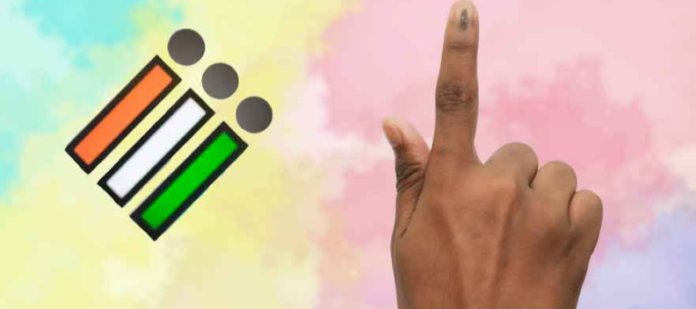Ravindra Ojha
What is the relevance of Rajya Sabha or Upper House of the parliament, if it is to be filled with the driving forces of cross-voting and rigging. Rampant cross voting by legislators was witnessed for polls to 15 Rajya Sabha seats from Uttar Pradesh, Karnataka and Himachal. Heavy cross-voting by Congress and other Opposition lawmakers turned the biennial Rajya Sabha elections into a thrilling contest and underlined the BJP’s ability to secure seats that appear out of grasp.
The ruling party at the Centre won the lone seat in Himachal Pradesh even though the Congress had eight extra lawmakers. It also secured eight seats in Uttar Pradesh, defeating one of the three Samajwadi Party candidates though the numbers were stacked against it.
Once the voting ended in Himachal, Abhishek Singhvi, backed by the Congress, and Harsh Mahajan, backed by the BJP, were tied at 34 votes each, meaning at least nine Congress and its allied legislators cross-voted. This led to a lottery, where Singhvi’s name was drawn for elimination.
“The lottery system in the Rajya Sabha is used for elimination, unlike the lottery system in the Lok Sabha and the Vidhan Sabha where it is used for selection. Since at least 2006, I cannot remember a case where the lottery system was invoked in Rajya Sabha elections,” SY Quraishi, former chief election commissioner, said.
PDT Achary, former secretary general of the Lok Sabha, could not remember an instance where the lottery system was used during Rajya Sabha elections. “I don’t remember [the last time lottery was used in RS elections]. It happens in state legislatures. We, in Lok Sabha and Rajya Sabha, were not involved in it. This (voting for RS elections) is all done by the assembly secretariat,” he said.
But more than the lottery, it was cross-voting that caused the political upset.
“Cross-voting has been happening for years in India, because of which anti-defection laws were passed… Despite that, it continues. It is the dark and unfortunate side of Indian politics… Cross-voting would not happen if there were ethics in politics. In the Rajya Sabha, the secrecy of the ballot was pushed to secondary position because the Supreme Court ruled that the ballot must be showed to an agent nominated by the party. For the Supreme Court, horse trading was worse than compromising the secrecy of the ballot. The idea was to show to the polling agent who had defected, who had taken money,” Quraishi said.
This was not the first time that the Congress suffered on account of cross-voting. In August 2017, Congress MP and party chief Sonia Gandhi’s most trusted aide Ahmed Patel faced an uphill task for his renomination due to cross-voting of party MLAs. Patel eventually won as the Election Commission ruled in favour of the Congress and cancelled two votes cast by rebel Congress MLAs on the grounds that they had shown their ballot paper to BJP leaders.
The Congress later expelled 14 Gujarat MLAs for voting against Patel and in favour of the BJP, and thus engaging in “anti-party activities”.
This open ballot voting system in the Rajya Sabha elections was introduced in 2003. In December 1998, a Rajya Sabha ethics committee report called for elections to the Rajya Sabha and the legislative councils in states be held via open ballot. This was suggested after one of two candidates fielded by the Congress in the June 1998 Rajya Sabha elections in Maharashtra lost despite the party instructing its MLAs to vote for its candidate. At the time, it was reported that other parties’ MLAs (Shiv Sena and BJP) had also cross-voted.
The Atal Bihari Vajpayee government moved to amend the Representation of the People Act, 1951 so that Section 59 would include a proviso that read, “provided that the votes at every election to fill a seat or seats in the Council of States shall be given by open ballot”. This bill faced a constitutional challenge and the Supreme Court upheld its constitutionality, saying, “If secrecy becomes a source for corruption, then sunlight and transparency have the capacity to remove it.”
In Himachal Pradesh, the Congress had the majority but cross-voting scuppered its advantage. In fact, by fielding a candidate, Harsh Mahajan, the BJP forced an election though it only had 25 MLAs in the 68-member assembly. The Congress had 40 members and the support of the remaining three independent legislators.
Congratulating Mahajan Union information and broadcasting minister Anurag Thakur posted on X: “Despite the majority in the Himachal Assembly, the Congress expressed its confidence in the external candidate, but due to the false guarantees of the Congress, infighting in the party, and distrust in the leadership, the victory of the local candidate of BJP’s Devbhoomi shows that the confidence of the people as well as the Congress leaders is not there.”


